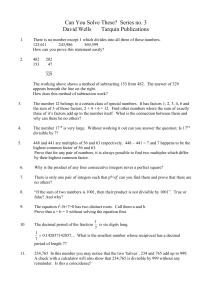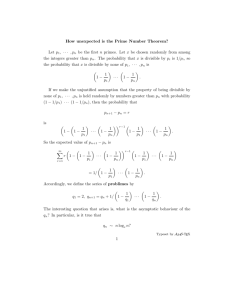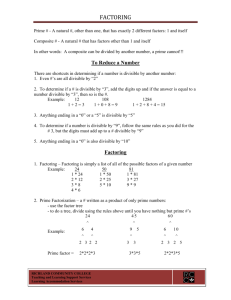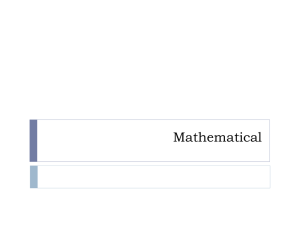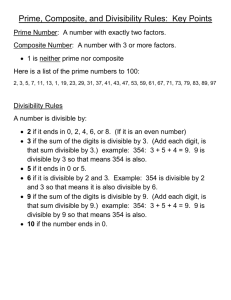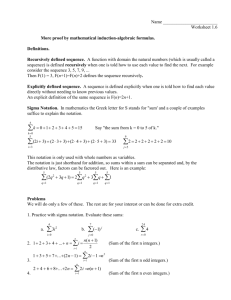Solutions - UC Davis Mathematics
advertisement
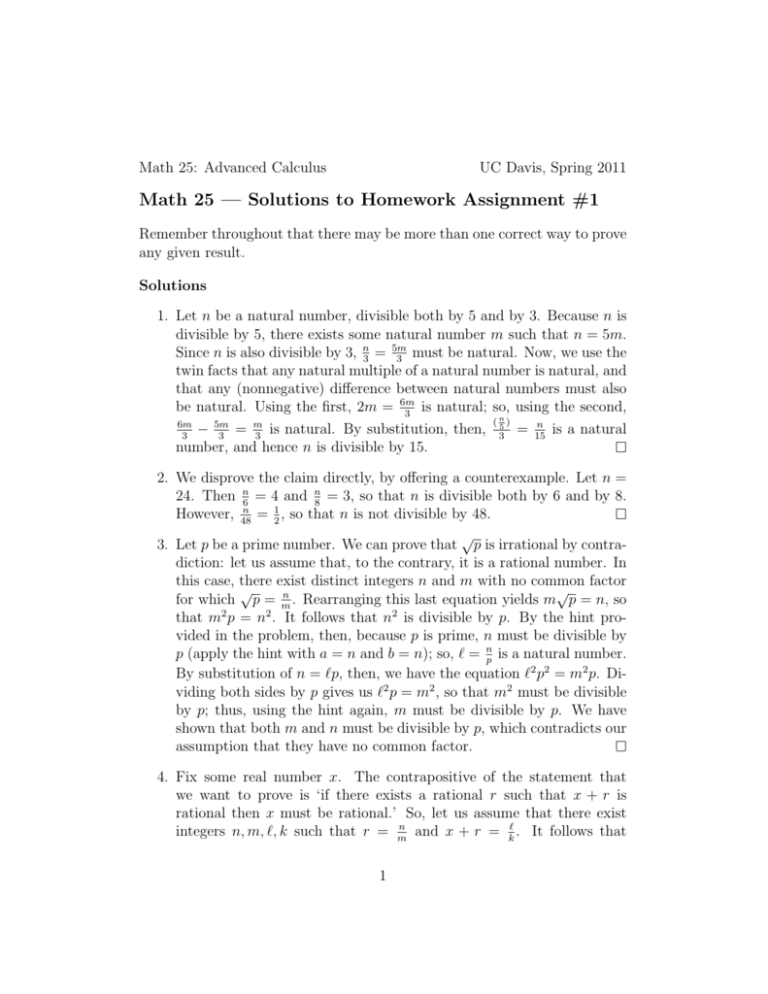
Math 25: Advanced Calculus UC Davis, Spring 2011 Math 25 — Solutions to Homework Assignment #1 Remember throughout that there may be more than one correct way to prove any given result. Solutions 1. Let n be a natural number, divisible both by 5 and by 3. Because n is divisible by 5, there exists some natural number m such that n = 5m. Since n is also divisible by 3, n3 = 5m must be natural. Now, we use the 3 twin facts that any natural multiple of a natural number is natural, and that any (nonnegative) difference between natural numbers must also is natural; so, using the second, be natural. Using the first, 2m = 6m 3 (n ) 6m 5m m n 5 − = is natural. By substitution, then, = 15 is a natural 3 3 3 3 number, and hence n is divisible by 15. 2. We disprove the claim directly, by offering a counterexample. Let n = 24. Then n6 = 4 and n8 = 3, so that n is divisible both by 6 and by 8. n However, 48 = 12 , so that n is not divisible by 48. √ 3. Let p be a prime number. We can prove that p is irrational by contradiction: let us assume that, to the contrary, it is a rational number. In this case, there exist distinct integers n and m with no common factor √ √ n . Rearranging this last equation yields m p = n, so for which p = m that m2 p = n2 . It follows that n2 is divisible by p. By the hint provided in the problem, then, because p is prime, n must be divisible by p (apply the hint with a = n and b = n); so, ` = np is a natural number. By substitution of n = `p, then, we have the equation `2 p2 = m2 p. Dividing both sides by p gives us `2 p = m2 , so that m2 must be divisible by p; thus, using the hint again, m must be divisible by p. We have shown that both m and n must be divisible by p, which contradicts our assumption that they have no common factor. 4. Fix some real number x. The contrapositive of the statement that we want to prove is ‘if there exists a rational r such that x + r is rational then x must be rational.’ So, let us assume that there exist n integers n, m, `, k such that r = m and x + r = k` . It follows that 1 n = `m−nk , the numerator and denominator of which are both x = k` − m km integers. Thus, x is a rational number. 5. The converse of the statement in question is ‘every odd number is greater than two and prime.’ We can disprove this directly: the number one is neither greater than two nor prime. Thus, by counterexample, the claim is false. 6. We prove by contradiction. Assume that there are only n primes; let’s call them p1 , p2 , . . . pn . Now, consider the number p1 · p2 · p3 · · · pn + 1. This is larger than any of the prime numbers that we’ve assumed to exist, so by assumption, it cannot be prime. It must, then, be divisible by at least one of the primes (we use the known fact that any natural number greater than 1 can be written as a product of primes); however, dividing it by any of p1 , p2 , . . . pn leaves us with a remainder of 1. So, it cannot be divisible by any of the primes. This is a contradiction, and our proof is complete. 2

